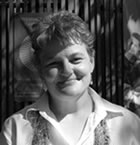THE MINNS LECTURES
Children of the Same God:
Unitarianism in Kinship with Judaism and Islam
2009 Lecture Series by Dr. Susan Ritchie
- About Rev. Dr. Ritchie
- Lectures 1-3
- Lectures 4-5
About Rev. Dr. Ritchie

The Rev. Dr. Susan Ritchie has served as the minister of the North Unitarian Universalist Congregation in Lewis Center, Ohio, since September 1996. During that time, the congregation has more than doubled in size, purchased not only its first building but a religious education center, and added three professional staff positions. Rev. Ritchie holds a Ph.D in cultural studies from the Ohio State University, and a divinity degree from the Methodist Theological School in Ohio.
She is also currently visiting professor of Unitarian Universalist heritage and ministry at the Starr King School for the Ministry, where she was in residence in Berkeley, California, this past fall.
Ritchie is published widely on the topic of Unitarian Universalist history and identity, and also religious cultural studies. She has held many district and UUA positions, most recently as chair of the Midwest Regional Subcommittee on Candidacy.
Ritchie is proud to have grown up as a third generation Unitarian. She lives in Columbus, Ohio, with her partner Donna and English Springer Valentino, where she enjoys madly competitive amateur tennis and the challenges of ambitious cooking.
Rev. Dr. Ritchie Lectures 1-3
Lecture 1: Children of the Same God: The Early Unitarian Theology of Relationship to Judaism and Islam
European Unitarianism was formed in large part through the desire to honor Christianity’s close kinship with Judaism and Islam. Convinced that Christians, Muslims, and Jews were a part of the same religious family, Unitarians emerged as Christians who resisted theologies of God that could not be freely shared across traditions. This lecture explores the earliest theological expressions of this multi- religious vision.
Tuesday, April 21, 6:30 pm reception followed by 7:00 pm lecture
UUA, 25 Beacon Street, Boston
Lecture 2: Children of the Same God: European Unitarianism in Creative Cultural Exchange with Ottoman Islam
We begin with how Unitarianism’s commitment to and articulation of religious tolerance arose from actual exchanges between sixteenth-century Transylvanians and Ottoman Muslims. From there, we explore the intentional efforts of European Unitarians to reach out to Muslim communities throughout the centuries.
Wednesday, April 22, 6:00 pm reception and 6:30 pm dinner ($10 fee for dinner), followed by 7:30 pm lecture
First Church in Boston, 66 Marlborough St., Boston
Lecture 3: Children of the Same God: European Unitarianism in Relationship to Judaism
While waves of European anti-Semitic persecutions troubled this identity, a strong affinity for Judaism distinguishes European Unitarianism across the centuries. For some Unitarians, this meant adopting Jewish practices; for others it meant establishing relationships with Jewish communities.
Monday, April 27, 6:30 pm reception followed by 7:00 pm lecture
King's Chapel Parish House, 64 Beacon St., Boston
Lectures are free and open to the public.
Rev. Dr. Ritchie Lectures 4-5
Lecture 4: Children of the Same God: Resistances and Possibilities in the North American Unitarian Engagement with Islam and Judaism
While the European Unitarian tradition was formed through creative engagement with actual Islamic and Jewish communities, the North American history in this regard has not been as rich. This lecture explores the racial and class identity of American Unitarianism that led its to not fully embracing kinship with Judaism and Islam in spite of many suggestions of affinity and connection.
Tuesday, April 28, 7:00 pm reception followed by 7:30 pm lecture
Andover Newton Theological School, Wilson Chapel, 210 Herrick Road, Newton Centre
Lecture 5: Children of the Same God: Unitarianism in Kinship with Judaism and Islam
Unitarian identity in Europe emerged as a defense of the inherent kinship between Christianity, Islam, and Judaism. This lecture examines the early theology of this relationship, and then summarizes the actual, creative encounters it engendered with Jewish and Muslim communities. The invigorating possibilities of re-engaging this multi-religious vision from within contemporary North American Unitarian Universalism are explored.
Saturday, June 27, 5:15 pm, UUA General Assembly, Salt Lake City
Co-sponsored by the Starr King School for the Ministry, Berkeley
Lectures are free and open to the public.